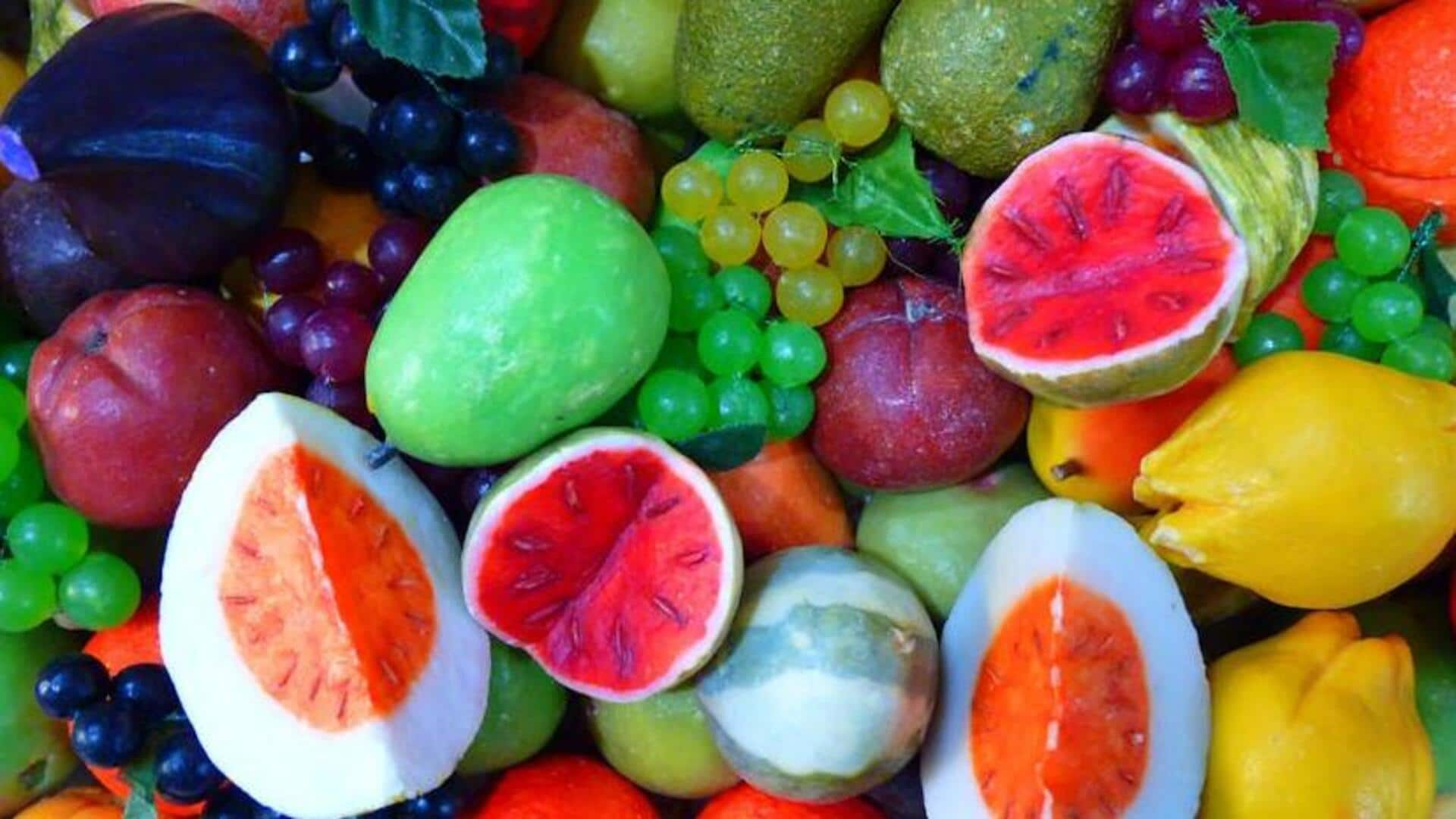
Fruits' antioxidant power: Combatting cellular damage
What's the story
Fruits are not only delicious but also loaded with powerful antioxidants that help shield our cells from harm. These natural warriors neutralize damaging free radicals, lowering the risk of chronic diseases and boosting overall well-being. Delve into the world of fruity antioxidant power and discover how adding them to your diet can supercharge your health.
Understanding antioxidants
The science behind antioxidants
Antioxidants are molecules that neutralize free radicals in our bodies. Free radicals are harmful, unstable atoms that can damage cells and contribute to aging and diseases like cancer, diabetes, and heart disease when their levels become too high. Fruits are packed with antioxidants including vitamin C, vitamin E, and beta-carotene, which help reduce these risks by neutralizing harmful free radicals.
Fruit Heroes
Top fruit sources of antioxidants
Some fruits are particularly high in antioxidants. Berries: Blueberries, strawberries, and raspberries are among the most antioxidant-rich fruits, thanks to their high flavonoid content. Others: Apples, cherries, plums, and black grapes also deserve a spot on the list for their strong antioxidant profiles. By including a variety of these fruits in your diet, you'll benefit from a wide range of antioxidants that help protect your body against oxidative stress.
How much is enough?
Daily intake recommendations
The suggested daily intake of fruits depends on age, sex, and physical activity level, but most adults should aim for one and a half to two cups per day. Consuming a variety of differently colored fruits ensures you get a broad spectrum of antioxidants, as different colors typically signify different beneficial compounds.
Easy ways to boost your diet
Practical tips for increasing fruit intake
Adding more fruits to your diet is easy with some practical tips: Top your breakfast cereal or oatmeal with fruit; keep fresh fruit in sight and within reach for quick snacks; blend frozen fruits into refreshing smoothies; or pack colorful fruit salads for lunch. Choose whole fruits instead of juice for more fiber and less sugar.
A healthier future
The impact on health outcomes
Regular intake of antioxidant-rich fruits correlates with lower rates of heart disease, cancer, Alzheimer's disease, and other conditions related to oxidative stress. While fruits alone aren't magic bullets for disease prevention, it's clear that incorporating them into a balanced diet is essential for optimal health and protection against chronic conditions.